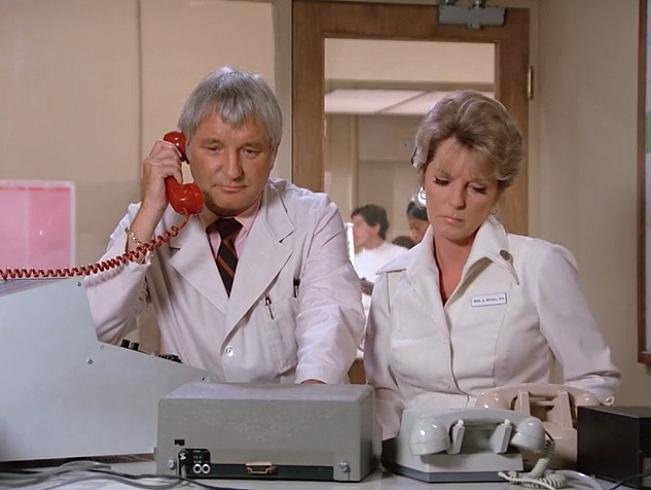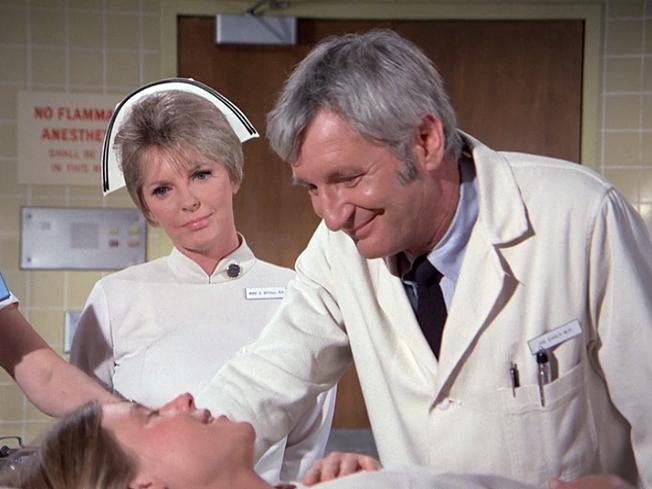Emergency! was more than just a TV show; it was a cultural phenomenon that reshaped the way we view paramedics and emergency medical services (EMS). Debuting in 1972, this American action-adventure series introduced the world to the high-stakes, life-saving work of paramedics, a role that was still relatively unknown to the general public at the time. Created by Robert A. Cinader and produced by Jack Webb, Emergency! not only captivated audiences with its thrilling stories, but also played a vital role in popularizing EMS across the United States. Let’s take a closer look at why Emergency! remains a timeless classic that continues to inspire.
What Was So Unique About Emergency!?

Emergency! stood out from other medical dramas of its time by focusing on paramedics rather than hospital settings. Set in Los Angeles, the series followed the brave rescue team of Squad 51 within the Los Angeles County Fire Department. The show revolved around paramedics Roy DeSoto (Kevin Tighe) and Johnny Gage (Randolph Mantooth), who responded to emergency calls, performing life-saving procedures on-site, and rushing patients to the hospital.
In an era when most medical dramas were confined to the operating room or hospital wards, Emergency! broke new ground by placing paramedics at the heart of the action. This fresh approach gave viewers an inside look at the critical role of emergency medical services and the fast-paced, life-and-death decisions that paramedics face on a daily basis.
Iconic Characters That Defined the Series
One of the main reasons Emergency! became such a beloved series was its memorable characters. At the core of the show were Johnny Gage and Roy DeSoto, two contrasting but complementary personalities. Johnny was the young, sometimes impulsive paramedic, while Roy was the experienced, steady veteran. Their dynamic created the perfect balance of tension and camaraderie, offering both heart-pounding drama and lighthearted moments.
Alongside the paramedic duo, Emergency! featured a strong supporting cast that rounded out the world of emergency services. Dr. Kelly Brackett (Robert Fuller) and nurse Dixie McCall (Julie London) were key players in the hospital setting, while neurosurgeon Dr. Joe Early (Bobby Troup) helped navigate the medical side of the show. The relationships between the paramedics and hospital staff created a unique blend of emergency response and healthcare, which made the series stand out.
How Emergency! Changed the Perception of EMS
Before Emergency!, the role of paramedics was somewhat misunderstood by the public. Many people thought of them as simply ambulance drivers, unaware of the extensive training and medical knowledge required to provide advanced care on the scene. The show not only depicted paramedics as healthcare professionals but also educated viewers on the crucial skills they needed to save lives in emergencies.
The show’s attention to accuracy helped shift the public’s understanding of EMS. With technical advisors like EMS pioneer James O. Page on hand, Emergency! made sure its depictions of medical procedures and rescues were as realistic as possible. The actors even underwent paramedic training to ensure they could authentically portray the life-saving techniques of their characters.
In fact, Emergency! was so influential that it contributed to real-world changes in EMS practices. As the series gained popularity, more municipalities began to expand their emergency medical services, increase funding for paramedic training, and improve overall EMS coverage. The impact of Emergency! on the EMS profession can still be felt today, with paramedics now recognized as integral parts of the healthcare system.
The Legacy of Emergency!: More Than Just a TV Show

Although Emergency! ended its run in 1977, its cultural impact continues to resonate. The series was groundbreaking for its time, and its depiction of paramedics helped to legitimize the field of emergency medical services in the eyes of the public. In recognition of its influence, memorabilia from the show was accepted into the Smithsonian Institution’s National Museum of American History in the late 1990s, solidifying its place in American television history.
The vehicles from Station 51, including the iconic rescue squad truck and ambulance, are preserved at the Los Angeles County Fire Museum, allowing future generations to appreciate the show’s contribution to the EMS field. Emergency! remains an integral part of TV history, serving as both a thrilling drama and an educational tool that introduced millions to the world of paramedicine.
Emergency! – A Cultural Icon with Lasting Popularity

What truly set Emergency! apart was its ability to balance thrilling emergency rescues with rich, emotional storytelling. Viewers didn’t just tune in for the action – they were invested in the characters’ personal lives and relationships. This blend of drama, action, and human connection made the series accessible and relatable, drawing in a wide audience.
Emergency! also tackled important social issues, such as the emotional toll of working in high-pressure, life-or-death situations. The show’s ability to portray the complexities of emergency medical services with sensitivity and accuracy contributed to its lasting popularity.
Even decades after its initial run, Emergency! remains a beloved classic. It influenced a generation of TV shows, many of which have followed in its footsteps by focusing on the world of emergency services. The show’s lasting appeal is a testament to its groundbreaking approach and its ability to touch on universal themes of heroism, compassion, and teamwork.
Conclusion: Emergency! – A Trailblazer in Medical Drama
In the world of classic TV shows, Emergency! holds a unique and special place. By focusing on the life-saving work of paramedics, the series broke new ground and helped change the way Americans viewed emergency medical services. With unforgettable characters, realistic portrayals of medical procedures, and a commitment to educating the public, Emergency! set the stage for future TV dramas that would follow in its wake.
Today, Emergency! is more than just a relic of the past; it’s a testament to the power of television to inspire change. Its impact on the EMS profession, as well as its lasting cultural significance, proves that the show was far ahead of its time. Whether you’re a fan of the action or the emotional depth, Emergency! remains a timeless classic that continues to captivate audiences to this day


